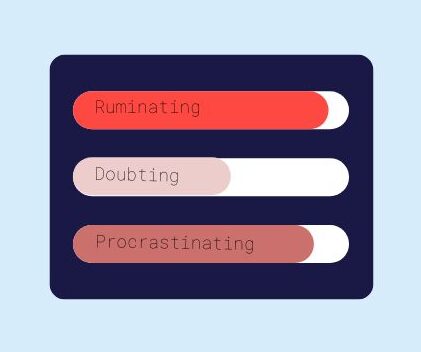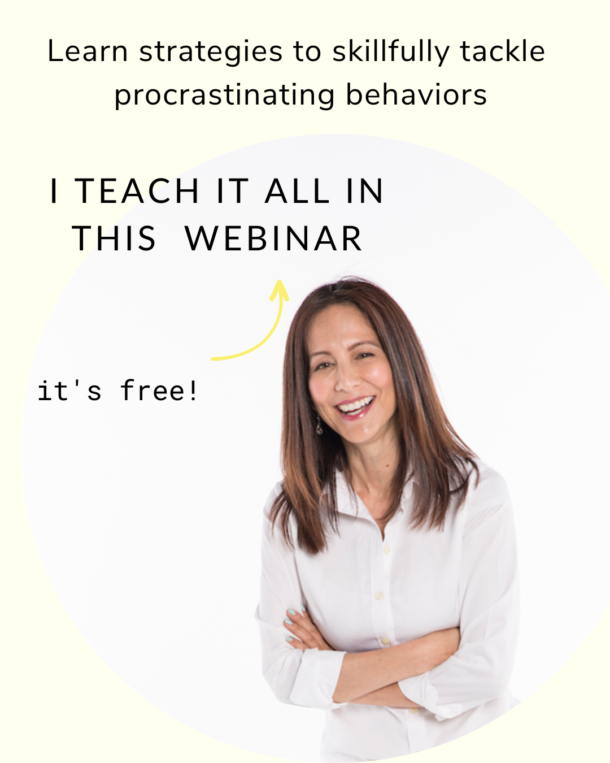
If you have been reading our blogs, you are likely familiar with the term OCD, which stands for Obsessive Compulsive Disorder. This is the clinical name for a pairing of obsessions or intrusive thoughts, feelings, and images that are managed by compulsive behaviors. As you might guess, this can look very different in different people. While there are endless possibilities of what the obsessions and compulsions may look like, there tends to be a few recognizable categories of fear that captures the picture. One of these fears is of making mistakes or not doing things right.
When someone has OCD that tells them they must do things right, making any small mistake becomes the worst thing ever, unbearable! Remember OCD is not bound by logic and sometimes gets sneaky. One particularly sneaky version of this OCD is academic perfectionism. The needing to do it right obsessions can be triggered by a slight comment, look, or wrong tone of voice when a parent is asking about school work. Once triggered the OCD sufferer will become compelled to start over again and again, sometimes spending hours on one task, re-reading and re-writing until they feel they have gotten it just right.
[bctt tweet=”OCD is not bound by logic and sometimes gets sneaky” username=”BehaviorChange_”]
You may be saying, isn’t it a good quality to be thorough? Sure, it is. However, when the uncertainty becomes obsessive the person will get caught in cycles of having to constantly check, re-do, and seek out reassurance. Sometimes these behaviors become ritualized, meaning the same steps will be repeated in the same order each time, but in other cases the compulsions are done until the person just feels right. This can become debilitating to the point of not being able to focus, leave the house, or complete daily tasks.
Here are some more examples of what this OCD may look like:
• Trigger: You think “I want to get good grades.”
Obsessions: But what if I forgot a part of the assignment. Now I’m not sure I read it all, in fact what if I didn’t scroll to the top of the page and I missed some directions. What if I still didn’t do it right? My classmate said it’s right, but what if they didn’t read all the directions?
Compulsions: Let me check the syllabus again, and again, and again. I’ll just delete my work and do it over. I need to check with my classmates and find out if they did it the same way. I need to check the directions again…
• Trigger: Your boss gives you a specific task to do.
Obsessions: I asked you about the way you wanted it done, but now I’m not sure I understand. I’m not sure I heard that correctly. You said I understand, however the way you said it was not convincing, and didn’t feel right. I can’t get rid of this nagging doubt and fear that it won’t be right.
Compulsions: I better ask again, let me check one more time, can you just tell me one more time?
• Trigger: Bed time, feeling tense and uncomfortable in your body.
Obsessions: I know I locked the front door and turned out all the lights, but what if forgot one? I cannot be certain I didn’t mix up the numbers on the alarm code. What if it wasn’t done in the right order, I won’t be able to sleep until I know it is done right.
Compulsions: I’ll make a list of the steps I follow (then I will know I did it right). I should just get up and do it one more time. I better do it again and again, until it feels completed.
If you are finding yourself stuck in these patterns of thought and the idea of not re-doing small tasks, checking with people or making lists feels unbearable, you might be suffering from OCD. The good news is that there is a clear effective treatment that you can try right now! Exposure and Response prevention (ERP) is an evidence-based treatment proven to be effective for most types of OCD (Tompkins, 2012).
Here’s a way you can start on your own:
1. Ask yourself, what will happen if I don’t check, or re-do it? Find out the core of the fears that drive your obsession.
2. Make a list of things you believe you cannot afford to make a mistake in.
3. Ask yourself, which are you willing to try?
4. Make a prediction of what will happen if you either purposely make the mistake, or purposely choose not to re-do or check? Make sure it is something you can see or measure: i.e. “I won’t be able to sleep all night” or “I will have a stomach ache for next hour,” not something unknowable such as “I’ll become homeless in the future” or “no one will ever trust me.”
5. Then do it!
6. Notice the discomfort, fears, urges, and whatever happens while you are not engaging in the compulsions or while you are intentionally making a small mistake. Really try to be present for this.
7. Check out the prediction you made. Did it go the way you expected? Did something you didn’t anticipate happen? Really pay attention to what you learned or noticed, you could keep a journal of these predictions and experiences. In fact, this is highly recommended as your very busy brain is likely to not keep the information.
After some hard work exposing yourself to the feared situations, and resisting the urges to do the compulsive behaviors, hopefully you will be gaining a more balanced picture of what could happen, meaning you will have experiences besides than the feared outcome. These thoughts will most likely still show up, but hopefully you will feel more in control of how you respond and can make choices that keep you doing what is important in life, spending less time on the excessive behaviors.
If this type of activity seems too difficult to do alone, or you are really feeling that you cannot get back into life, i.e. you cannot bear work or school and are unable to manage the tasks of daily life; please seek out professional help. A trained psychologist can help you understand your OCD, do exposures with you to build confidence, and guide you to expertise so you can continue doing exposures on your own. You may also want to seek a consultation with a psychiatrist as some people with OCD benefit from SSRI’s (selective serotonin reuptake inhibitors) and therapy in combination (Tompkins, 2012).
References
Tompkins, M.A. (2012). OCD: A Guide for the Newly Diagnosed. Oakland, CA: New Harbinger Publications.







